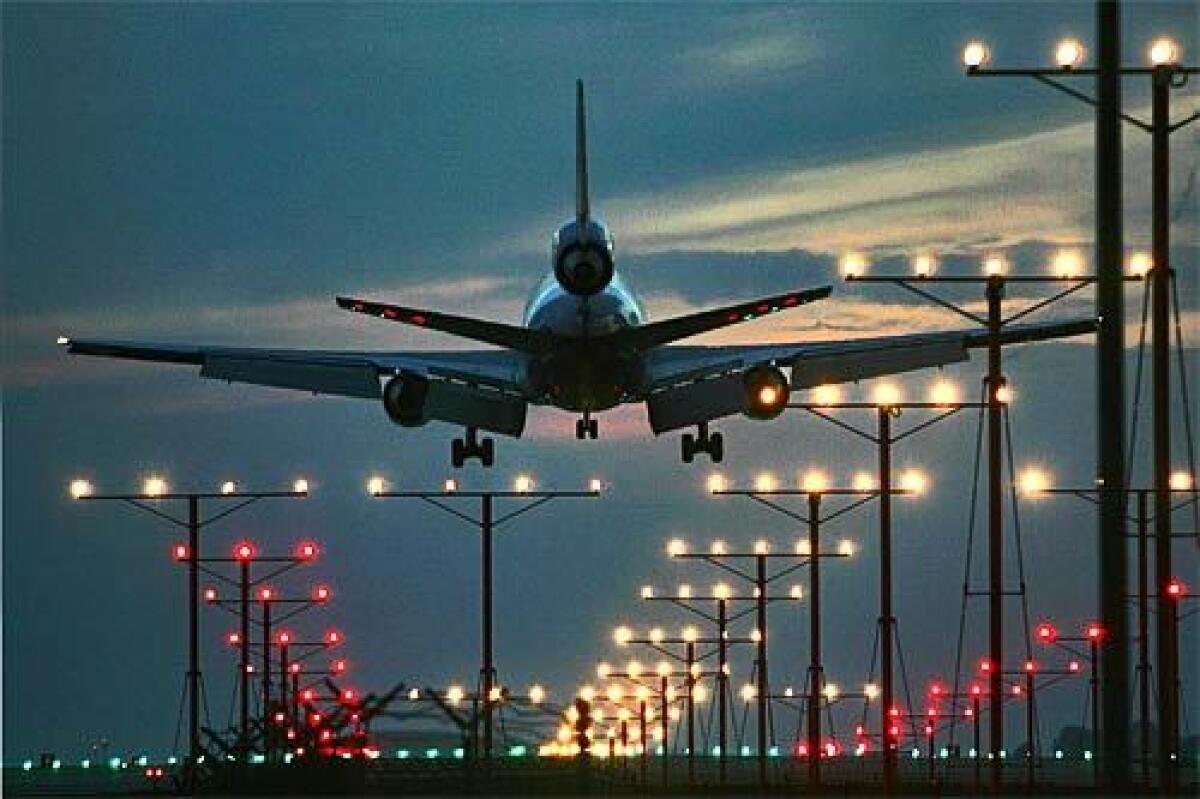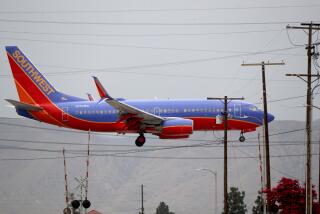Coronavirus could inflict biggest blow to travel industry since Great Recession

For the last decade, the U.S. travel industry has been enjoying an unusually long stretch of growing demand, pushed by a strong economy and relatively cheap jet fuel.
But the outbreak of the coronavirus that has killed more than 3,300 people and infected tens of thousands more is already projected to inflict billions of dollars in losses, representing the biggest hit to the $8.8-trillion global travel industry since the economic meltdown of 2008-09.
Responding to government-imposed travel restrictions and a steep drop in demand, airlines have cut thousands of international and domestic flights, Walt Disney Co. has closed theme parks in China and Japan, and two of the worldâs biggest hotel chains have shuttered hotels in China. Cruise lines are either barring or imposing extra screening on any travelers who have visited 11 countries and regions where the virus has struck hardest.
âIn my mind, this is worse than the financial crises, but hopefully not as bad as the 9/11 [terrorist attacks] when the whole industry stopped,â said Roger Dow, president and chief executive of the U.S. Travel Assn., the trade group for the countryâs travel industry. âThe numbers we are losing right now are monstrous.â
A trade group for the worldâs airlines Thursday dramatically increased its estimated loss in revenue to the airline industry, pushing the figure as high as $113 billion if the outbreak is not contained to the countries where reports of infections are heavy. The loss to U.S. and Canadian airlines could be as high as $21 billion, according to the estimate by the International Air Transport Assn.
By comparison, the trade group had predicted last month that the worldwide loss would be about $30 billion.
âSince that time, the virus has spread to over 80 countries and forward bookings have been severely impacted on routes beyond China,â the trade group said in a statement.
Travel and tourism are responsible for 319 million jobs worldwide, or about 1 of every 10 jobs, according to the World Travel and Tourism Council, a branch of the United Nations.
Demand for air travel, hotel rooms and cruise trips has been growing relatively steady in the last decade, rebounding from such setbacks as horrific airline disasters in Indonesia and Ethiopia, a cruise ship sinking in Italy and a mass shooting in Las Vegas.
But the coronavirus outbreak could have deeper and longer-lasting effects on travel not only because of how fast the infection has spread but also because the outbreak has centered on China, which in the last few years has grown as an economic powerhouse and as the worldâs fastest-growing source of international travelers.
About 3 million Chinese travelers visited the U.S. in 2018, up from fewer than 1 million visitors in 2010, according to the U.S. Department of Commerce.
With the spread of the virus, most inbound flights from China were halted at the end of January and cruise lines canceled sailings that serve Chinese ports. Airlines have also cut routes from Italy, Japan and South Korea, where new reports of infections have grown.
The U.S. Travel Assn. predicted that the number of international visitors to the U.S. would drop by 6% over the next three months, the largest decline since the 2008-09 financial crisis.
The effects have been widespread:
- At Los Angeles International Airport, the total number of airline departures has dropped 3.9% in March, compared with the same month in 2019, according to Justin Erbacci, interim chief executive at the airport. Concession sales from restaurants and retail stores at the airport are also down 10%, he told a meeting of the Los Angeles City Council on Wednesday.
- Tour operators in Los Angeles are reporting heavy cancellations at a time when the upcoming spring break travel period should represent a boost in business. âWe have literally lost every single conference group we had,â said Danny Roman, who operates a hiking and biking tour company called Bikes and Hikes. âOur entire spring lineup has canceled.â
- Walt Disney Co. has temporarily shuttered two parks in Japan â Tokyo Disneyland and Tokyo DisneySea â along with Hong Kong Disneyland and Shanghai Disneyland, the $5.5-billion park that opened in 2016.
- Delta Air Lines, which had previously halted all service to China because of the virus, announced it would reduce the number of flights to Japan and South Korea because of a drop in demand. The Atlanta-based airline also announced it was temporarily suspending its daily flights from New York to Milan, Italy, and was delaying the start of seasonal service to Venice, Italy, by a month.
- At United Airlines, the domestic schedule will be cut by 10% in April and international flying will be reduced by 20%, the Chicago-based carrier told employees Wednesday. The company also imposed a hiring freeze through June 30 and deferred merit-based salary increases for management until July 1. In addition, United said it will offer voluntary unpaid leaves of absence.
- When Federal Reserve Board Chairman Jerome H. Powell announced Tuesday a cut to short-term interest rates of half a percentage point, he told reporters he had been prompted partly by concerns from business leaders, including those in the travel industry. âThe effects are at a very early stage,â he said. âBut you are hearing concerns from people, for example, from the travel business or the hotel business.â
- Marriott International, one of the worldâs largest hotel companies, said in its Feb. 27 earnings report that it had closed 90 hotels in China because of the outbreak. Some of those hotels have since reopened, Marriott officials said. Hilton World Wide said in its Feb. 11 earnings report that the hotel giant had closed about 150 hotels in China, representing about 33,000 rooms.
Dow said he was hopeful that travelers who had canceled plans to visit international destinations might instead stay in the U.S. for the upcoming spring break travel season. He also noted that 62 million people visit China each year, mostly from adjacent Asian countries, representing a group of travelers that Dow said might consider instead flying to the U.S. for a vacation.
âWe want people to know itâs safe here,â he said.
More to Read
Inside the business of entertainment
The Wide Shot brings you news, analysis and insights on everything from streaming wars to production â and what it all means for the future.
You may occasionally receive promotional content from the Los Angeles Times.












